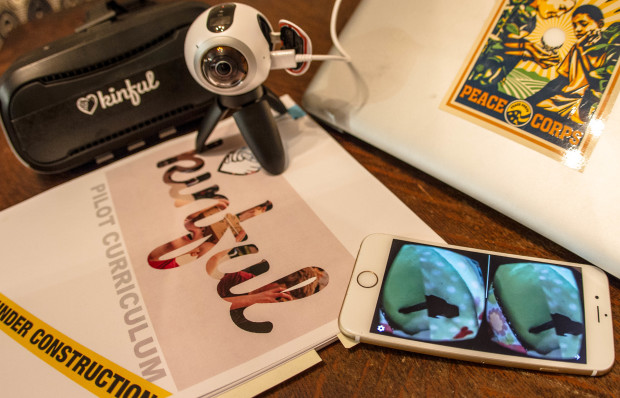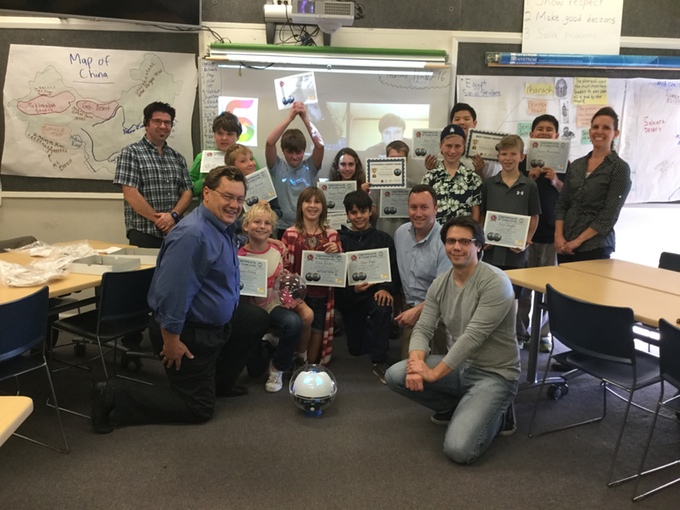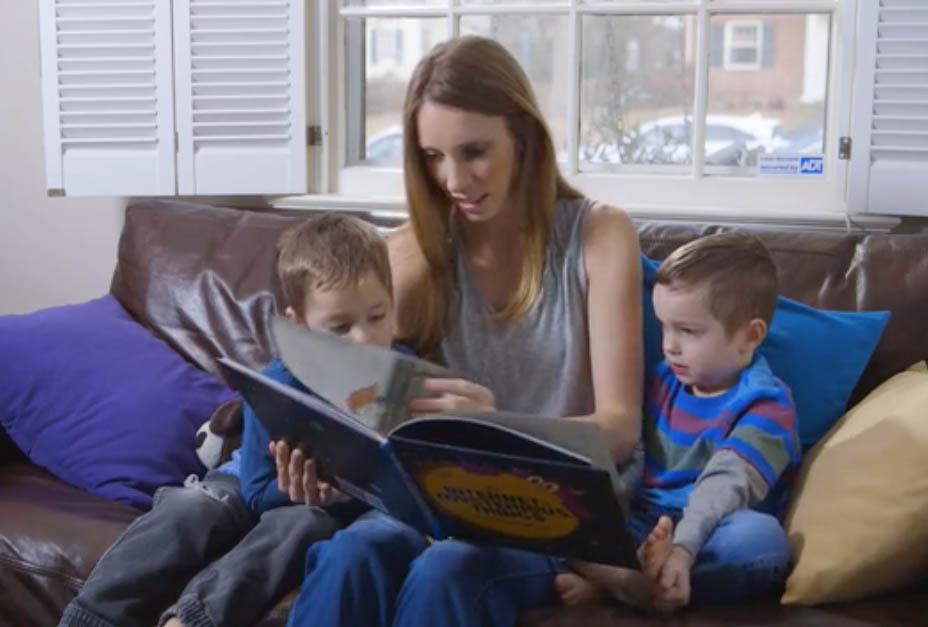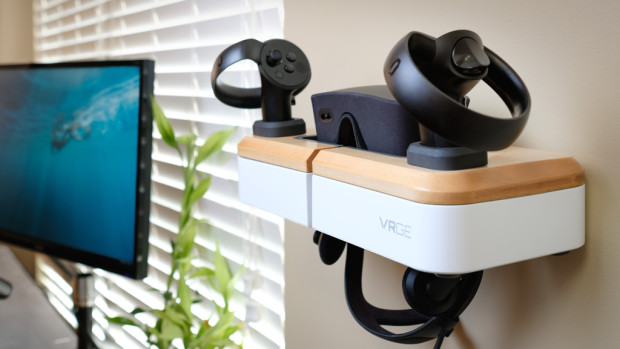Crowdfunding Snapshot: 4 Campaigns for Immersive Technologies
With virtual reality (VR) and augmented reality (AR) hardware sales on the rise, it comes as no surprise that many software developers, inventors and educators are trying to get in the game. THE Journal has highlighted a few grassroots VR, AR and mobile products that are using crowdfunding websites like Indiegogo and Kickstarter to develop immersive learning technologies.
1) Kinful
Kinful, a global network of schools, is pairing classrooms located on opposite sides of the world on its virtual reality platform. The idea is to foster social-emotional learning (SEL) through intercultural exchanges, according to its Indiegogo campaign page. “Through virtual reality, students are immersed in the perspectives of others, and afterwards are guided through in-classroom exercises to discuss the experience.” The curriculum helps students unlock SEL competencies like social awareness, self-awareness, self-management, relationship skills and responsible decision-making through experiential learning.

Image Credit: Kinful.
Kinful’s campaign ends in two days and has currently raised $3,400. With the funding, the nonprofit will be able to onboard five additional schools to use the VR curriculum, impacting approximately 500 students. View the campaign here.
2) The AI Professor
The AI Professor is a companion robot designed to help children learn. It is “conceptualized as a uniquely powerful interface-terminal to the most advanced artificial intelligence and supercomputing engines,” according to its Kickstarter campaign page. Its spherical design enables it to roll, while motion tracking, face-recognition, voice localization, auto navigation and more help direct it. The AI professor also features a camera, microphone, Wi-Fi transceiver, speakers and wheels.

Image Credit: The AI Professor.
The device was field-tested during a four-week robotics courses for students in grades 3 to 8. It was also tested as a science teacher’s assistant at a Silicon Valley middle school and a college. “In such capacity, students were introduced to NeuroSyntek own Biological Neural Networks, Quantum Computing/D-Wave, IBM Watson and Google DeepMind/AlphaGo.”
With 11 days to go, the campaign has raised $6,342 of its $750,000 goal. View the campaign here.
3) Internet of Mysterious Things
Another Kickstarter campaign for a children’s book that explains common technologies we use everyday is way ahead of its funding deadline — with an original goal of $18,000 and $20,451 raised seven days ahead of schedule.

Image Credit: Internet of Mysterious Things.
The Internet of Mysterious Things (IoMT) was developed by Lisa Seacat DeLuca, a software engineer and inventor at IBM. DeLuca designed the book “with a touch of technology,” since children can tap on hidden creatures on each page to launch more information about a particular technology. This is accomplished through 10 Near Field Communication (NFC) tags that are each encoded with a URL. When tapped, the tag launches a website with information on how the technology works, as well as fun facts.
The companion Alexa Skill for parents is available on the Amazon Alexa Skill store, allowing families with an Echo device to deliver random facts about IoT devices or read the book aloud.
View the campaign here.
4) VRGE (Virtual Reality Charging Dock)
A campaign on Indiegogo features a practical and versatile product that can organize and charge VR hardware brands like HTC Vive, Oculus Rift or Playstation VR. The VRGE VR dock provides options for storing headphones in both wall-mounted or desktop configurations. Its dimensions are approximately 14.17 inches in length, 6.5 inches in depth and 2.7 inches in height. Its total weight is about 2.2 lbs.

Image Credit: VRGE VR.
The campaign has successfully passed its funding goal with $36,541 raised to date. View the campaign here.